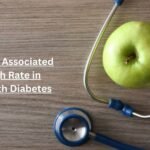Tea and coffee, popular beverages among most Americans, offer various health benefits, including support for managing high blood sugar, improving mood, boosting metabolism, enhancing focus, and aiding in weight maintenance.
Recent scientific research suggests that drinking tea or coffee may also significantly reduce the risk of head and neck cancer. “This study highlighted the varying effects these beverages have on different subtypes of head and neck cancer, including the finding that even decaffeinated coffee had a positive impact,” said senior study author Yuan-Chin Amy Lee. She added that previous studies have also linked regular consumption of coffee and tea to a lower cancer risk.
Head and neck cancers, which include malignancies of the mouth and throat, rank as the sixth most common cancer worldwide. To investigate this link further, Lee’s team at the Huntsman Cancer Institute analyzed 14 studies that compared the intake of tea, decaffeinated coffee, and caffeinated coffee among 9,500 individuals with head and neck cancer and around 15,800 healthy participants.
The findings were published in the peer-reviewed journal of the American Cancer Society Cancer, on Monday.
Caffeinated Coffee
The U.S. Food and Drug Administration (FDA) recommends limiting caffeine intake to no more than 400 mg per day, which is roughly equivalent to four or five 8-ounce cups of coffee.
Cancer researchers have found that consuming three to four cups of caffeinated coffee daily was linked to a 41% reduced risk of hypopharyngeal cancer, a type of cancer that develops in the lower part of the throat. Drinking more than four cups of coffee per day was associated with a 22% lower risk of throat cancer, a 30% reduced risk of oral cavity cancer, and a 17% lower overall risk of head and neck cancer.
Coffee is rich in antioxidants, such as caffeic acid and chlorogenic acid, which help protect cells from damage caused by free radicals. Additionally, the beverage contains compounds like kahweol and cafestol, which can protect against DNA damage. One study also suggested that these compounds may help detoxify the mucous membranes lining the throat and mouth.
Decaf Coffee
While decaffeinated coffee may not offer the same benefits as caffeinated coffee, it has still been linked to a 25% reduced risk of oral cavity cancer. However, studies have indicated that people who drink decaf coffee tend to smoke more and exercise less than those who drink regular coffee. This data suggests that other lifestyle factors might be contributing to the differences in cancer risk between decaf and caffeinated coffee drinkers.
Tea
Tea is rich in flavonoids, natural compounds that possess anti-inflammatory, antioxidant, and anti-cancer properties. It has long been recognized for its benefits to heart health, bone strength, and cholesterol levels. However, a recent study has shown mixed results regarding its impact on cancer risk.
Drinking one cup or less of tea per day was associated with a 27% lower risk of hypopharyngeal carcinoma and a 9% reduced risk of head and neck cancer overall. On the other hand, consuming more than one cup per day was linked to a 38% increased risk of laryngeal cancer, which affects the voice box.
“These findings highlight the need for more research on how coffee and tea can reduce cancer risk, as well as the complexity of coffee and tea consumption habits,” said senior study author Yuan-Chin Amy Lee. Dr. Michael Blasco, director of head and neck oncology and reconstruction at Staten Island University Hospital, noted that other factors, such as smoking habits or genetic predispositions, might play a role in these outcomes.
How to Choose the Best Beverage
Stephanie Schiff, a registered dietitian nutritionist at Northwell Huntington Hospital, shared helpful tips with The Post on how to select healthier teas and coffees.
- Opt for Organic Coffee: Choosing organic coffee can help reduce your exposure to pesticides. If you buy tea in bags, be sure to look for an organic label.
- Mind the Caffeine Content: If you experience symptoms like jitters, elevated blood pressure, or trouble sleeping, it’s important to check the caffeine levels in your beverages and reduce your intake accordingly.
- Choose Black Coffee: Coffee that is closer to black is generally healthier. Adding sugar, flavorings, artificial sweeteners, or cream reduces the health benefits.
Resource: Nypost















